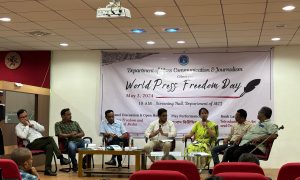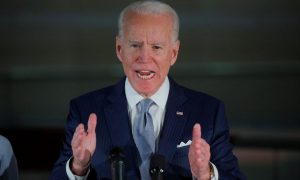The United States Department of State released its Country Reports on Terrorism 2018, highlighting each country’s efforts in the global fight against terrorism. The following is a transcript of Kuwait’s efforts in this field during the past year, which credits the Kuwaiti government for improving its counterterrorism measures, being a regional leader in the Global Coalition to Defeat, and implementing programs to fight extremist ideologies at public schools.
Overview: The Government of Kuwait focused on improving its capacity to
implement counterterrorism arrangements concluded in previous years. Kuwait
joined the United States and other members of the Terrorist Financing Targeting
Center (TFTC) in coordinated domestic designations of individuals and entities
associated with Hezbollah and the Taliban. Kuwait is a regional leader in the
Global Coalition to Defeat IS and co-leads, with Turkey and the Netherlands,
the Coalition’s FTF Working Group. In February, Kuwait hosted a full Coalition
ministerial meeting at which the Coalition’s Guiding Principles were affirmed.
2018 Terrorist Incidents: There were no reported terrorist incidents in Kuwait
in 2018.
Legislation, Law Enforcement, and Border Security: Kuwait made no significant changes to its counterterrorism legal framework or border security procedures in 2018. In January, the Court of Appeals upheld the sentences of seven defendants convicted of funding IS and training IS members to use arms. The first defendant, a Lebanese national, was also convicted of fighting for IS and sentenced to 15 years. The other six defendants (two Kuwaitis, two Saudis, one Syrian, and one Egyptian) were sentenced to 10 years each. Also in January, the Criminal Court, after finding insufficient evidence, acquitted five Syrians and one Iraqi of transferring money to Syria through an exchange bureau to finance and support IS. In March, the Court of Appeals upheld the 2017 sentencing of a Filipina national to 10 years in prison, followed by deportation, for her affiliation with IS. The subject was in contact with the terrorist group in Libya where her husband was an IS fighter. She confessed to being a member of IS and plotting terrorist attacks in Kuwait. In July, the Court of Cassation upheld the Court of Appeals’ five-year prison sentence of a Kuwaiti citizen for joining IS and fighting for the terrorist group in Syria. Charges also included exporting and selling Syrian oil for the terrorist group’s benefit. During 2018, the Kuwaiti government participated in multiple Department of State-supported capacity-building workshops that focused on counterterrorism or counterterrorism financing. In addition, Kuwait concentrated on law enforcement and judicial capacity building across a broad spectrum of government agencies. For example, in December the Department of Justice’s Office of Overseas Prosecutorial Development, Assistance, and Training (OPDAT) organized a three-day, AML/CFT training for practitioners from across Kuwait’s AML/CFT regime, to include Kuwait’s FIU, the Ministry of Commerce and Industry, and others on a broad spectrum of investigative techniques often used in terrorism investigations.
Countering the Financing of
Terrorism: Kuwait is a member of the Middle East
and North Africa Financial Action Task Force (MENAFATF), the Defeat-IS
Coalition’s Counter-IS Finance Group, and the TFTC. Kuwait’s FIU is a member of
the Egmont Group. In 2018, Kuwait hosted two meetings of the TFTC Executive
Committee in Kuwait City. In May, TFTC member states designated individuals and
entities associated with Hezbollah. However, Kuwait chose not to designate
Hasan Nasrallah, the Secretary General of Hezbollah. In October, Kuwait joined
its TFTC partners in designating nine individuals associated with the Taliban,
including those facilitating Iranian support to bolster the terrorist group. In
2018, Kuwait’s National Committee on CFT finalized its National CFT Risk
Assessment, which contains plans and recommendations that will be presented to
the Kuwait Cabinet. In October, five Kuwaitis who work in counterterrorism and
the financial industry participated in the Department of State’s International
Visitor Leadership Program, meeting with professional counterparts and visiting
US public and private sector organizations related to combating terrorist
financing and FTFs.
Countering Violent Extremism: Kuwait’s Ministry of Education implemented a
program to fight what it viewed as extremist ideologies at public schools
through teacher-training and student-counseling programs. As part of the
government’s National Plan to Reinforce Moderation, the Ministry of Information
runs a television channel with programming aimed at audiences believed to be at
higher risk of radicalization to violence. The Ministry of Awqaf and Islamic
Affairs maintained a training program for imams and a separate program enabling
social salon (diwanya) owners to invite religious scholars to engage attendees
and counter the potential presence of “radicalizing influences.” In August, the
Ministry announced a new annual award for the imam who offers an innovative
initiative in the field of “countering extremism.”
International and Regional Cooperation: In January 2018, Kuwait joined the UNSC for a two-year term and serves as chair of the UNSC’s Democratic Republic of the Congo Sanctions Committee and vice chair of the Somalia and Central African Republic sanctions committees. In February, Kuwait hosted the Kuwait International Conference for Reconstruction of Iraq. In June, Kuwait participated in the FATF-MENAFATF joint plenary meeting in Paris. Kuwait is also an active member of the Arab League and of the Organization of Islamic Cooperation. As a member of the Gulf Cooperation Council (GCC), Kuwait has been playing a lead role in mediating the GCC dispute among Bahrain, Saudi Arabia, and the United Arab Emirates on the one hand and Qatar on the other.
Source: Kuwait Times






















 WhatsApp us
WhatsApp us